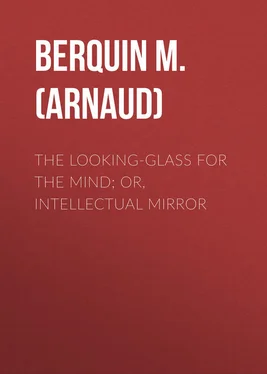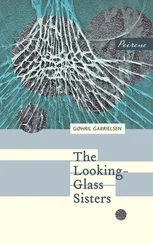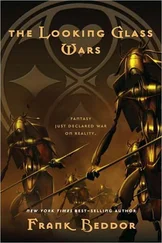M. (Arnaud) Berquin - The Looking-Glass for the Mind; or, Intellectual Mirror
Здесь есть возможность читать онлайн «M. (Arnaud) Berquin - The Looking-Glass for the Mind; or, Intellectual Mirror» — ознакомительный отрывок электронной книги совершенно бесплатно, а после прочтения отрывка купить полную версию. В некоторых случаях можно слушать аудио, скачать через торрент в формате fb2 и присутствует краткое содержание. Жанр: foreign_antique, foreign_prose, на английском языке. Описание произведения, (предисловие) а так же отзывы посетителей доступны на портале библиотеки ЛибКат.
- Название:The Looking-Glass for the Mind; or, Intellectual Mirror
- Автор:
- Жанр:
- Год:неизвестен
- ISBN:нет данных
- Рейтинг книги:4 / 5. Голосов: 1
-
Избранное:Добавить в избранное
- Отзывы:
-
Ваша оценка:
- 80
- 1
- 2
- 3
- 4
- 5
The Looking-Glass for the Mind; or, Intellectual Mirror: краткое содержание, описание и аннотация
Предлагаем к чтению аннотацию, описание, краткое содержание или предисловие (зависит от того, что написал сам автор книги «The Looking-Glass for the Mind; or, Intellectual Mirror»). Если вы не нашли необходимую информацию о книге — напишите в комментариях, мы постараемся отыскать её.
The Looking-Glass for the Mind; or, Intellectual Mirror — читать онлайн ознакомительный отрывок
Ниже представлен текст книги, разбитый по страницам. Система сохранения места последней прочитанной страницы, позволяет с удобством читать онлайн бесплатно книгу «The Looking-Glass for the Mind; or, Intellectual Mirror», без необходимости каждый раз заново искать на чём Вы остановились. Поставьте закладку, и сможете в любой момент перейти на страницу, на которой закончили чтение.
Интервал:
Закладка:
"O fie," said Louisa, "give them to your cat! What, suffer such innocent things as those to be killed by the merciless talons of a cat?" – "Even so," said the boy, and giving the cage a careless swing, that tumbled the poor birds one over another, off he was setting, when Louisa called him back, and asked him what he would have for his birds. "I will sell them," said he, "three for a penny, and there are eighteen of them." Louisa struck the bargain, and ran to beg the money of her papa, who not only cheerfully gave her the money, but allowed her an empty room for the reception of her little captives.
The boy, having thus found so good a market for his birds, told all his companions of it; so that, in a few hours, Louisa's yard was so filled with little bird-merchants, that you would have supposed it to be a bird-market. However, the pretty maiden purchased all they brought, and had them turned into the same room, with those of her former purchase.
When night came, Louisa went to bed with more pleasure than she had felt for a long time. "What a pleasing reflection it is," said she to herself, "to be thus capable of preserving the lives of so many innocent birds, and save them from famine and merciless cats! – When summer comes, and I go into the woods and groves, these pretty birds will fly round me, and sing their sweetest notes, in gratitude for my kind attention to them." – These thoughts at last lulled her to sleep, but they accompanied her even in her dreams; for she fancied herself in one of the most delightful groves she had ever seen, where all the little birds were busied, either in feeding their young, or in singing, and in hopping from bough to bough.
The first thing Louisa did, after she had got up in the morning, was to go and feed her little family in the room, and also those that came into the yard. Though the seed to feed them cost her nothing, yet she recollected that the many purchases she had lately made of birds must have almost exhausted her purse; "and if the frost should continue," said she to herself, "what will become of those poor birds that I shall not be able to purchase! Those naughty boys will either give them to their cats, or suffer them to die with hunger."
While she was giving way to these sorrowful reflections, her hand was moving gently into her pocket, in order to bring out her exhausted purse; but, judge what must be her surprise and astonishment, when, instead of pulling out an empty purse, she found it brimful of money! She ran immediately to her papa, to tell him of this strange circumstance, when he snatched her up in his arms, tenderly embraced her, and shed tears of joy on her blooming cheeks.
"My dear child," said her papa to her, "you cannot conceive how happy you now make me! Let these little birds continue to be the objects of your relief, and, be assured, your purse shall never be reduced to emptiness." This pleasing news gladdened the little heart of Louisa, and she ran immediately to fill her apron with seed, and then hastened to feed her feathered guests. The birds came fluttering round her, and seemed conscious of her bounty and generosity.
After feeding these happy prisoners, she went down into the yard, and there distributed a plentiful meal to the starving wanderers without. What an important trust had she now taken on herself! – nothing less than the support of a hundred dependants within doors, and a still greater number without! No wonder that her dolls and other playthings should be now totally forgotten.
As Louisa was putting her hand into the seed-bag, to take out of it the afternoon food for her birds, she found a paper, on which were written these words: "The inhabitants of the air fly towards thee, O Lord! and thou givest them their food; thou openest thy hand, and fillest all things living with plenteousness."
As she saw her papa behind her, she turned round and said, "I am therefore now imitating God." – "Yes, my sweet Louisa," said her father, "in every good action we imitate our Maker. When you shall be grown to maturity, you will then assist the necessitous part of the human race, as you now do the birds; and the more good you do, the nearer you will approach the perfections of God."
Louisa continued her attention to feed her hungry birds for more than a week, when the snow began to melt, and the fields by degrees recovered their former verdure. The birds who had lately been afraid to quit the warm shelter of the houses, now returned to the woods and groves. The birds in our little Louisa's aviary were confined, and therefore could not get away; but they showed their inclination to depart, by flying against the windows, and pecking the glass with their bills. These birds, perhaps, were industrious, and wished not to be troublesome to Louisa, since they could not procure their own living.
Louisa, not being able to comprehend what could make them so uneasy, asked her papa if he could tell the cause of it "I know not, my dear," said her papa; "but it is possible these little birds may have left some companions in the fields, which they now wish to see." – "You are very right, papa," replied Louisa, "and they shall have their liberty immediately." She accordingly opened the window, and all the birds flew out of it.
These little feathered animals had no sooner obtained their liberty, than some were seen hopping on the ground, others darting into the air, or sporting in the trees, from twig to twig, and some flying about the windows, chirping, as though out of gratitude to their benefactor.
Louisa hardly ever went into the fields, but she fancied that some of her little family seemed to welcome her approach, either by hopping before her, or entertaining her with their melodious notes, which afforded her a source of inexhaustible pleasure.
THE STORY OF BERTRAND, A POOR LABOURER, AND HIS LITTLE FAMILY
Think yourselves happy, my little readers, since none of you perhaps know what it is to endure hunger day after day, without being able to enjoy one plentiful meal. Confident I am, that the following relation will not fail to make an impression on your tender years.
Bertrand was a poor labourer, who had six young children, whom he maintained with the utmost difficulty. To add to his distresses, an unfavourable season much increased the price of bread. This honest labourer worked day and night to procure subsistence for his family, and though their food was composed of the coarsest kind, yet even of that he could not procure a sufficiency.
Finding himself reduced to extremity, he one day called his little family together, and with tears in his eyes, and a heart overflowing with grief, "My sweet children," said he to them, "bread is now so extravagantly dear, that I find all my efforts to support you ineffectual. My whole day's labour is barely sufficient to purchase this piece of bread which you see in my hand; it must therefore be divided among you, and you must be contented with the little my labour can procure you. Though it will not afford each of you a plentiful meal, yet it will be sufficient to keep you from perishing with hunger." Sorrow and tears interrupted his words, and he could say no more, but lifted up his hands and eyes to heaven.
His children wept in silence, and, young as they were, their little hearts seemed to feel more for their father than for themselves. Bertrand then divided the small portion of bread into seven equal shares, one of which he kept for himself, and gave to the rest each their lot. But one of them, named Harry, refused his share, telling his father he could not eat, pretending to be sick. "What is the matter with you, my dear child?" said his father, taking him up in his arms. "I am very sick," replied Harry, "very sick indeed, and should be glad to go to sleep." Bertrand then carried him to bed, and gave him a tender kiss, wishing him a good night.
Читать дальшеИнтервал:
Закладка:
Похожие книги на «The Looking-Glass for the Mind; or, Intellectual Mirror»
Представляем Вашему вниманию похожие книги на «The Looking-Glass for the Mind; or, Intellectual Mirror» списком для выбора. Мы отобрали схожую по названию и смыслу литературу в надежде предоставить читателям больше вариантов отыскать новые, интересные, ещё непрочитанные произведения.
Обсуждение, отзывы о книге «The Looking-Glass for the Mind; or, Intellectual Mirror» и просто собственные мнения читателей. Оставьте ваши комментарии, напишите, что Вы думаете о произведении, его смысле или главных героях. Укажите что конкретно понравилось, а что нет, и почему Вы так считаете.











